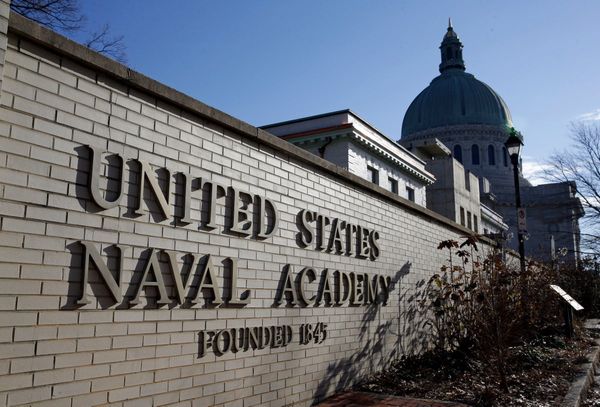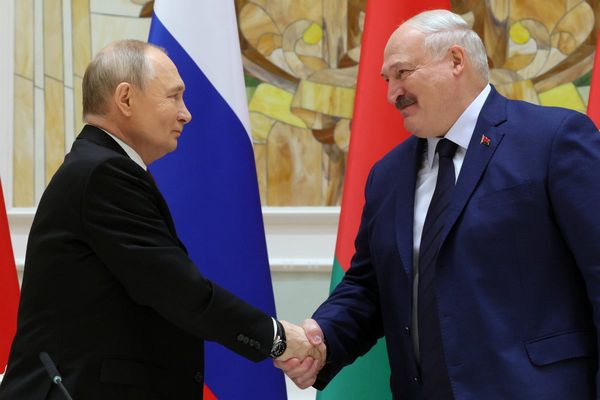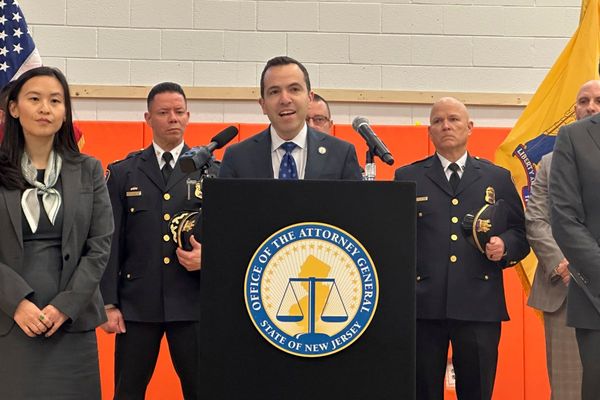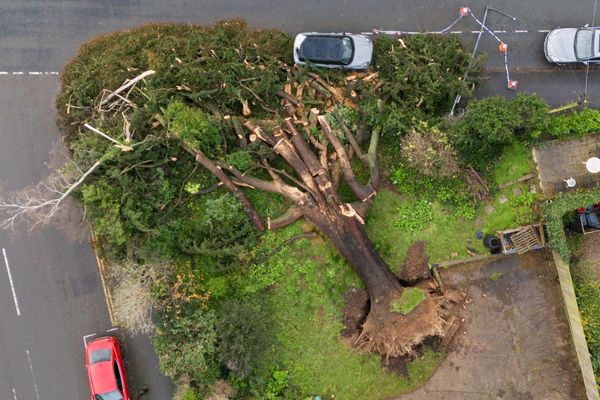When Bessy Persenitis read last week's ABC report that taxpayer-funded aged care homes across Australia had funnelled $31 million into the coffers of the Greek Orthodox Archdiocese, she wasn't surprised.
"The lavishness of the Greek church, it goes beyond a joke sometimes," she says.
"I've been at church services where I've heard a priest remind people if they're close to their death, make sure they update their wills and donate their properties to the church."
It was moments like this that led Ms Persenitis to stop attending the bricks-and-mortar building two decades ago.
"It's not unique to the Greek Orthodox Archdiocese, [but] I'm disappointed – it's something that is supposed to be a beautiful haven, and symbolises something so amazing," she says.
Still, the teacher and mother of three says she "absolutely" identifies as Greek Orthodox, and continues to follow religious traditions with her children.
Community backlash
On Sunday, the church released a statement disputing that "the Archdiocese has been the recipient of substantial sums from St Basil’s [aged care home]" or that "these same monies have funded the lifestyle of the Archbishop".
Kostas Kalymnios, a lawyer based in Melbourne who was recently appointed to the board of St Basil's aged care home, says he's witnessed a backlash to the ABC report in the community.
"There is now this perception that, for whatever reason, the Greek community is being targeted or if it's not being targeted, then at least we are dealt with in a less responsible manner, because somehow we are seen in less esteem than other mainstream communities," he says.
However, Mr Kalymnios knows of other community members who are focussing on the content on the reporting, and asking: "Where did this money come from?"
While Mr Kalymnios says he wants an "accountable, transparent, efficiently run church", he recognises the Archbishop – who arrived in Australia in mid-2019 – has led the Archdiocese during an exceptionally difficult time.
"There is, in our community, a lot of sympathy for this Archbishop, because we believe that [there were] existing challenges that he wasn't aware of or didn't have time to come to grips with," he says, referring to the COVID-related deaths at St Basil's.
A culture of 'dogmatism'
Mr Kalymnios says members of the Greek community "aren't afraid" to criticise the church or ask questions – be them institutional or theological.
But Nick Trakakis, a senior lecturer in philosophy at the Australian Catholic University, has a different view.
He studied at St Andrew's Greek Orthodox Theological College during the 1990s, and found the church to be a "highly authoritarian structure" that allowed little room for reform, dissent or criticism.
"I got a better understanding of how the church operates, and by the time I finished my studies, I was finished with the church as well," says Dr Trakakis, who was raised Greek Orthodox.
"It was the dogmatism, the narrow-mindedness about matters of faith and morals, that really drove me away."
Despite his own scepticism, Dr Trakakis says many believers feel obliged to side with the church.
"If you are religious and belong to the Greek community here, there's only one game in town, and that's the Greek Orthodox Church," he says.
Australia's Orthodox schism
But not all Greek Orthodox Australians have been followers of the Archdiocese, and its hierarchical structure, in recent times.
From 1963 until as late as 2012, a smaller breakaway group called the Greek Orthodox Community existed as a separate entity.
According to Nicholas Pappas, the Honorary Secretary and Trustee of the Greek Orthodox Archdiocese of Australia Consolidated Trust, there were two reasons for that split.
First, he notes, the Greek Orthodox Archdiocese wasn't established in Australia until 1924 and, by that time, there were existing Greek communities, including a Sydney-based church that was established in 1898.
Dr Pappas says when the patriarch-appointed archbishop, then called a metropolitan, arrived on Australian shores, there was a division between him – as elected hierarch – and this pre-existing church.
A second factor was the mass migration post-WWII from Greece to Australia which, he says, added "a second layer of tension".
"I suppose, [as] a product of the civil war in Greece, there was a democratic spirit that travelled with the Greek migrants to Australia that perhaps conflicted with the hierarchical structures of the church," Dr Pappas told Andrew West on The Religion and Ethics Report.
When divisions resurface
Fotis Kapetopoulos, a journalist for Greek community newspaper Neos Kosmos, says these distinctions are important.
After all, he points out that in South Australia, there's still a schism between the Greek Orthodox Archdiocese and the Community structures, which include churches, although there have been moves towards conciliation.
Because of this, Mr Kapetopoulos says it's "profoundly wrong" to label Archbishop Makarios as the leader or representative of the Greek Orthodox Community.
"The Communities are secular," he says. "[But] they might pay their dues to the church, in terms of allowing their priests to be ordained under the Archdiocese, where once they were split."
"But what's happened now, and the way it's been reported, it puts us in a strange frame because suddenly, of course, we have fights amongst the community as to who's who."
Mr Kapetopoulos says the report has brought old tensions back to the surface.
"[They're] profoundly based not so much on belief as much as on power, and who has the right to represent us?"
A period of holiness
These questions of faith and power come at an important time in the Greek Orthodox calendar.
It is currently the season known as Great Lent, a period marked by prayer, fasting and repentance, which leads up to Easter, or "Pascha", on Sunday, May 2.
Despite the recent media attention, Mr Kalymnios doesn't believe church attendance will suffer.
For him, the rituals around Easter are both cultural and religious.
"They're embedded within the Greek Australian identity," he says.
"So, I don't think we'll see less people attending services because of these controversies, I really don't."







